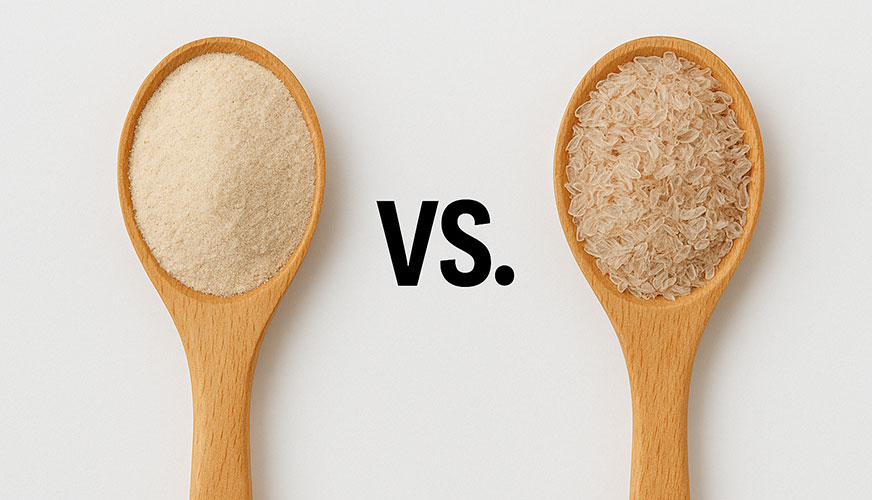
Psyllium Husk Powder vs. Whole Husk – What’s the Difference?
Psyllium husk has long been celebrated for its digestive benefits and high fiber content, but when it comes to choosing between psyllium husk powder and whole husk, many consumers are unsure of the difference. While both forms come from the same Plantago ovata plant, they serve slightly different purposes and have unique characteristics that can influence your health routine.
What Is Whole Psyllium Husk?
Whole psyllium husk is the unprocessed outer coating of the psyllium seed. It's coarse in texture and expands when mixed with water, forming a gel-like consistency. This natural bulking agent is excellent for supporting bowel regularity and overall digestive health. Since it's in its raw form, it takes slightly longer to digest and absorb but is ideal for people who prefer a more natural, minimally processed fiber supplement.
What Is Psyllium Husk Powder?
Psyllium husk powder is made by grinding whole psyllium husk into a finer, more concentrated form. This makes it quicker to mix into liquids and easier for the body to digest. It's especially popular for baking low-carb, gluten-free recipes and is often preferred by those who want a smoother texture in shakes, smoothies, or supplements.
Key Differences at a Glance:
| Feature | Whole Husk | Husk Powder |
|---|---|---|
| Texture | Coarse | Fine |
| Absorption Speed | Slower | Faster |
| Ease of Use | May require more mixing | Easily blends |
| Use in Recipes | Less common | Great for baking |
| Effectiveness | Gentle | More concentrated |
Which One Should You Choose?
Your choice depends on your goals. If you're looking for a gentle, natural fiber supplement, whole husk is a great option. For faster absorption, easier mixing, and culinary versatility, husk powder is the way to go. Both deliver powerful digestive benefits, so it ultimately comes down to personal preference and application.
Conclusion:
Whether you choose psyllium husk powder or whole husk, you're making a great decision for your digestive health. Be sure to drink plenty of water and consult with your healthcare provider if you’re using it for therapeutic purposes.



